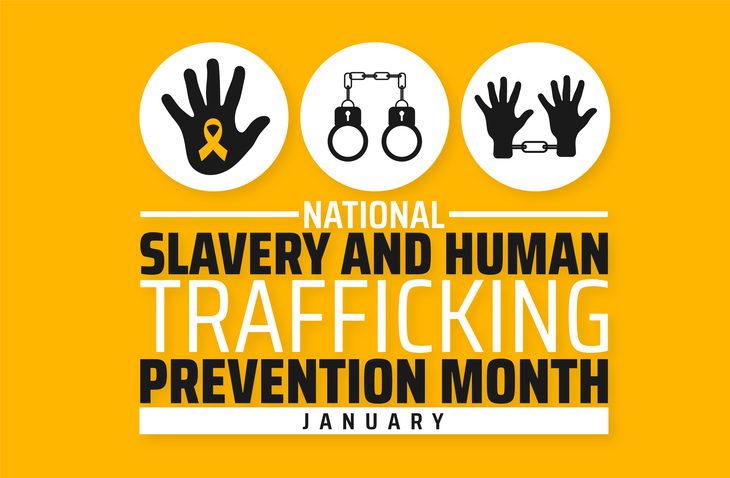Source: Neelrong28 / Getty
A recent lawsuit against American Airlines has brought attention to the importance of identifying and addressing human trafficking. This month is National Human Trafficking Prevention Month, so we have curated a list of signs to spot when human trafficking could be happening around you and how to prevent it. Check out the list of signs inside.
A retired Black police officer named Anthony Williams alleges racial discrimination after being wrongfully accused of trafficking his wife during their honeymoon flight. This incident shed light on the need for awareness surrounding human trafficking. Not only to prevent unjust accusations, but also to effectively address actual trafficking situations.
Human trafficking is a widespread issue that requires vigilance from individuals, organizations, and law enforcement. It’s becoming more and more frightening as the human trafficking industry grows around the world.
Below are key signs to look out for, compiled from experts and advocates, to help recognize potential trafficking victims:
Behavioral Changes
Trafficking victims may appear unusually fearful, submissive, or overly compliant. They might exhibit sudden changes in behavior, such as avoiding eye contact or showing signs of anxiety when interacting with others.
Control by Another Person
Be cautious if someone seems to have their actions, speech, or movement controlled by another person. This could include someone else holding their travel documents or speaking on their behalf.
Lack of Personal Freedom
Victims often lack autonomy, such as the ability to leave their job or home, access their own money, or make basic decisions about their life.
Physical Signs of Abuse
Look for visible injuries, such as bruises, burns, or other signs of physical abuse. Malnourishment or fatigue can also indicate exploitation.
Unrealistic Work or Living Conditions
Trafficking victims might live in cramped or unsanitary housing with limited personal belongings. They may work excessively long hours in hazardous environments for little to no pay.
Lack of Identification
Victims often don’t have access to personal documents like passports or IDs, as these are held by traffickers to maintain control.
Scripted or Coached Responses
When questioned, victims may provide rehearsed or inconsistent answers, indicating they have been coached on what to say.
Unfamiliarity with Surroundings
Victims might not know their location or address, which can be a red flag, especially in travel settings.
While vigilance is crucial, it’s equally important to approach potential situations with care and sensitivity. Misidentifying someone can lead to trauma and harm, as in Williams’ case. To report suspected trafficking, contact the National Human Trafficking Hotline at 1-888-373-7888 or text “HELP” to 233733.







